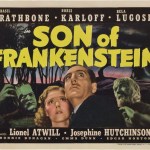TACT
Quackademic medicine. I didn't invent the term. (Dr. R. W. Donnell did—nearly nine years ago.) However, I sure use it a lot, because it perfectly describes a phenomenon that has proliferated and metastasized throughout the body of academic medicine like the cancer it is. I like to think that, in my own way, I've popularized the word to describe this particular phenomenon. But what it this phenomenon? It is nothing less than the degradation of the scientific basis of medicine through the infiltration of pseudoscience and quackery into medical academia, with academic physicians who otherwise…
Whenever I refer to quackademic medicine and how the infiltration of quackery into medical academia has led to unethical clinical that are not only pseudoscientific wastes of money but potentially downright harmful to patients, two always come to mind. The first is the trial that tested the late Nicholas Gonzalez’s protocol for advanced pancreatic cancer, comparing it to standard-of-care chemotherapy. His protocol basically involves a combination of supplements (up to 150 a day), various vegetable juices, and, yes, the infamous coffee enema—several a day, actually. It’s basically a mystical,…
One of the things that first led me to understand the dangers of quackademic medicine was a trial known as the Trial to Assess Chelation Therapy, or TACT. Chelation therapy, as you might recall, is the infusion of a chelating agent, or a chemical that binds heavy metals and makes it easier for the kidney to secrete them, in order to treat acute heavy metal poisoning. Unfortunately, quacks of all stripes have latched on to chelation therapy to treat a number of diseases and conditions. For instance, antivaccine quacks like to use chelation therapies to treat autistic children using the…
Over the years, the criticism of "evidence-based medicine" (EBM) that I have repeated here and that I and others have repeated at my not-so-super-secret other blog is that its levels of evidence relegate basic science considerations to the lowest level evidence and elevate randomized clinical trial evidence to the highest rung, in essence fetishizing it above all, a form of thinking that I like to call methodolatry. Now, when EBM works correctly, this is not an entirely unreasonable way to look at things. After all, we just want to know what works in patients. Basically, when EBM is working…
I remember during medical school that more than one of my faculty used to have a regularly repeated crack that the only thing that taking vitamin supplements could do for you was to produce expensive pee. My first year in medical school was nearly thirty years ago now; so it's been a long time. During the nearly three decades since I first entered medical school, I have yet to see any evidence to persuade me otherwise. If you eat a well-rounded diet, you don't need vitamin supplementation. Of course, none of that stops the supplement manufacturers from trying to convince us that taking…
If there's one thing that a certain subset of people who view themselves as reasonable and science-based don't like, it's harshness: Harshness in criticism, harshness in discussion, or—horror of horrors!—anything they view as "incivility." That's all well and good as far as it goes, but the problem is that sometimes there are things that demand a harsh response because they are just that bad. For instance, when the government spends $30 million on a clinical trial to test a wildly implausible treatment that is not without risks for no good scientific reason and no real reason other than that…
When I wrote about the Trial to Assess Chelation Therapy (TACT) trial last week, little did I suspect that I would be revisiting the topic again so soon. For those of you not familiar with TACT, it was a trial designed to test a favorite quack treatment for cardiovascular disease, chelation therapy. It is, as I have described many times in the past, an incredibly implausible therapy based on a hugely simplistic concept that because calcium accumulates in atherosclerotic lesions, then using chelation therapy could remove the calcium and reduce the lesions. Chelation therapy is a favorite…
With very limited exceptions, chelation therapy is, as I said before in my somewhat Insolent opinion, is pure quackery. The sole exception is for real, documented cases of acute heavy metal poisoning that are known to respond to chelation, such as iron overload due to transfusion, aluminum overload due to hemodialysis, copper toxicity due to Wilson's disease, acute heavy metal toxicity, and a handful of other indications. Basically, chelation therapy involves infusing chemicals that can bind to metal ions and make them easier for the kidneys to excrete. The problem is, there is no good basic…
Chelation therapy, in my somewhat Insolent opinion, is pure quackery. Unfortunately, it's also one of the most common quackeries out there, used by a wide variety of practitioners for a wide variety of ailments blamed on "heavy metal toxicity." Chelation therapy involves using chemicals that can bind to the metal ions and allow them to be excreted by the kidneys is standard therapy for certain types of acute heavy metal poisoning, such as iron overload due to transfusion, aluminum overload due to hemodialysis, copper toxicity due to Wilson's disease, acute heavy metal toxicity, and a handful…

